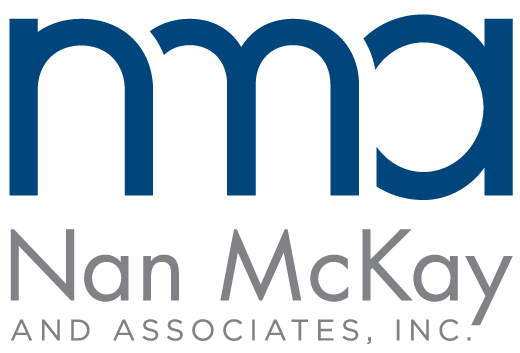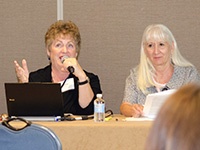Meet the NMA team: Sammie Szabo
Up next in our "Meet the Team" interview series is senior associate trainer Sammie Szabo, who joined NMA five years ago after retiring from a four-decade career in the affordable housing industry. With longstanding expertise in complex topics such as project-based vouchers and mixed finance, Ms. Szabo was instrumental in the design of two new seminars focusing on those subjects, Blended Occupancy Management and Developing and Managing Project-Based Vouchers.
Tell us about your work experience.
Before joining Nan McKay and Associates, I worked for a PHA in Southern California for 36 years. That was before the Section 8 program was created, and we administered a public housing program with a total staff of seven people — two in the administrative office (me and the executive director), three in maintenance, and two in the resident services department.
Our waiting list for the public housing program was huge in comparison to the number of units owned by my PHA, and we were very excited when Congress approved the Section 8 program. I wrote our first application for the Section 8 certificate program, and we were approved! Subsequently I wrote and submitted a number of additional applications each and every time funds were available for the certificate program, as well as for the CIAP (pre-capital fund for public housing) and the resident services program.
I became the executive director of the PHA in 1980, and I believe that at age 26 I was the youngest ED. During my tenure with the PHA I expanded the Section 8 program, converted from certificates to vouchers, substantially remodeled the public housing development that had been constructed in 1940, expanded the resident services program, established a vibrant after-school program serving not only children in the public housing program but also in the surrounding community, acquired and rehabbed dilapidated apartments in order to expand affordable housing, and developed affordable housing for seniors using multiple funding sources, including low-income housing tax credits, redevelopment funds, and a loan from the California Housing Finance Agency.
How did you get your start in the industry?
I moved back to California and was looking for a job that interested me, and wasn't just a paycheck. I was offered two jobs on the same day, one at a local college, the other with the housing authority. The people and the work at the housing authority interested me, I hadn't had any experience in the public sector, and after growing up the community, I found the fact that there were programs to help persons of low income in a rather wealthy community fascinating.
I accepted the job with the housing authority, and I was hooked. The job was never boring, and the opportunities to learn, grow, and expand the programs and services that help families move up and out were challenging. I loved it! I always said I would leave the public sector when I got bored, or found the job no longer challenged me. It never happened. Frustrating at times? Absolutely! Boring? Never.
What’s one topic you’re most passionate about in the affordable housing industry?
Providing families, and especially children, with an opportunity to improve their lives and futures. Housing is the keystone to a better future.
What's your favorite part about your job?
Helping the people who help the people. Sounds corny, but it's what we do. At NMA we take pride in providing our students and clients with the tools they need to do their job well. I am thrilled when I complete a consulting assignment or training and know that because of the work we do, our clients are better prepared to serve their agencies and their clients and manage these precious federal resources.
Describe your typical work day?
There isn't a typical work day. Some days are all about travel — getting from home base to the training or consulting site, dealing with airports, security, hotels, car rentals, and all that is associated with the joys of travel. Some days I get up very, very early, often in a different time zone, locate training rooms and materials, unpack, set up a training room, and prepare myself to be ready and energized when the students arrive. Thank God for coffee!
Other days it's all about meeting with agency staff, getting to know their agency and their needs in order to meet their consulting goals, and respectfully providing the services they need. Yes, living in hotels and eating meals alone is part of the job, but the services we provide are well worth the travel, long days, early mornings, and sore feet.
Tell us about a successful project that you had a part in.
I'm thankful that I've had the opportunity to be a part of many successful projects: working with my team and the local police department to turn a crime-ridden public housing development into a clean, safe, family-friendly environment; developing much-needed senior housing for extremely low-income seniors as well as "gap group" seniors, those above the income limit levels for government subsidies but too poor to afford quality housing with services; and helping agencies create policies and procedures that allow them to better manage their agencies.
The one that touches my heart the most... the development of an after-school program for children in public housing. When I started at the housing authority, I was appalled by the dropout rate of the youth growing up in public housing. By the time I left my agency, 99 percent of our young people graduated from high school, and the majority went on to graduate from college. We made a real difference, long-term, in the lives of those children and their families.
When she isn't traveling, training, or consulting, Sammie Szabo loves to read, and can devour a book or two a day. She also enjoys riding the dunes on her quad and appreciating the beauty of the desert, but her favorite pastime is spending time with her family.


